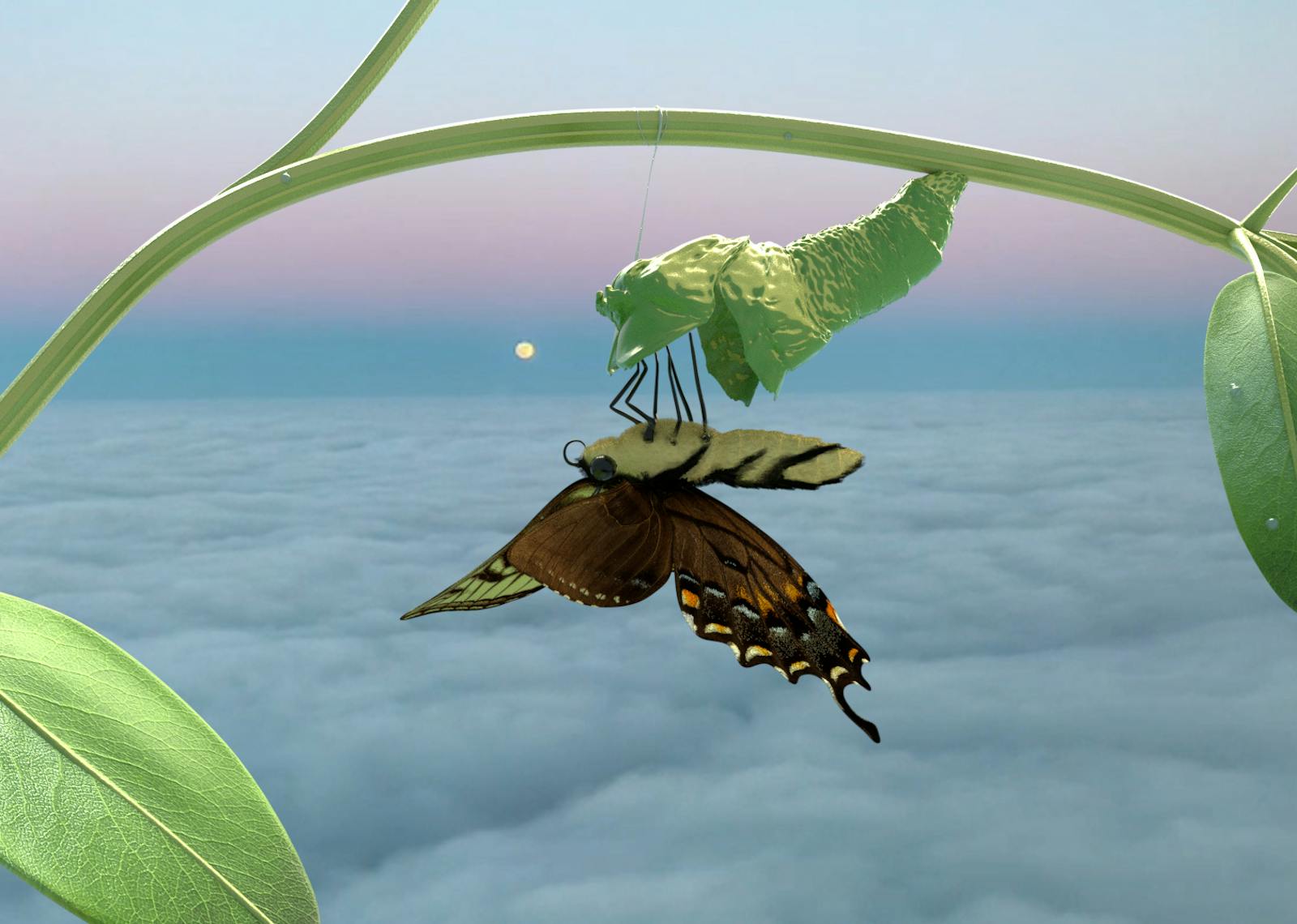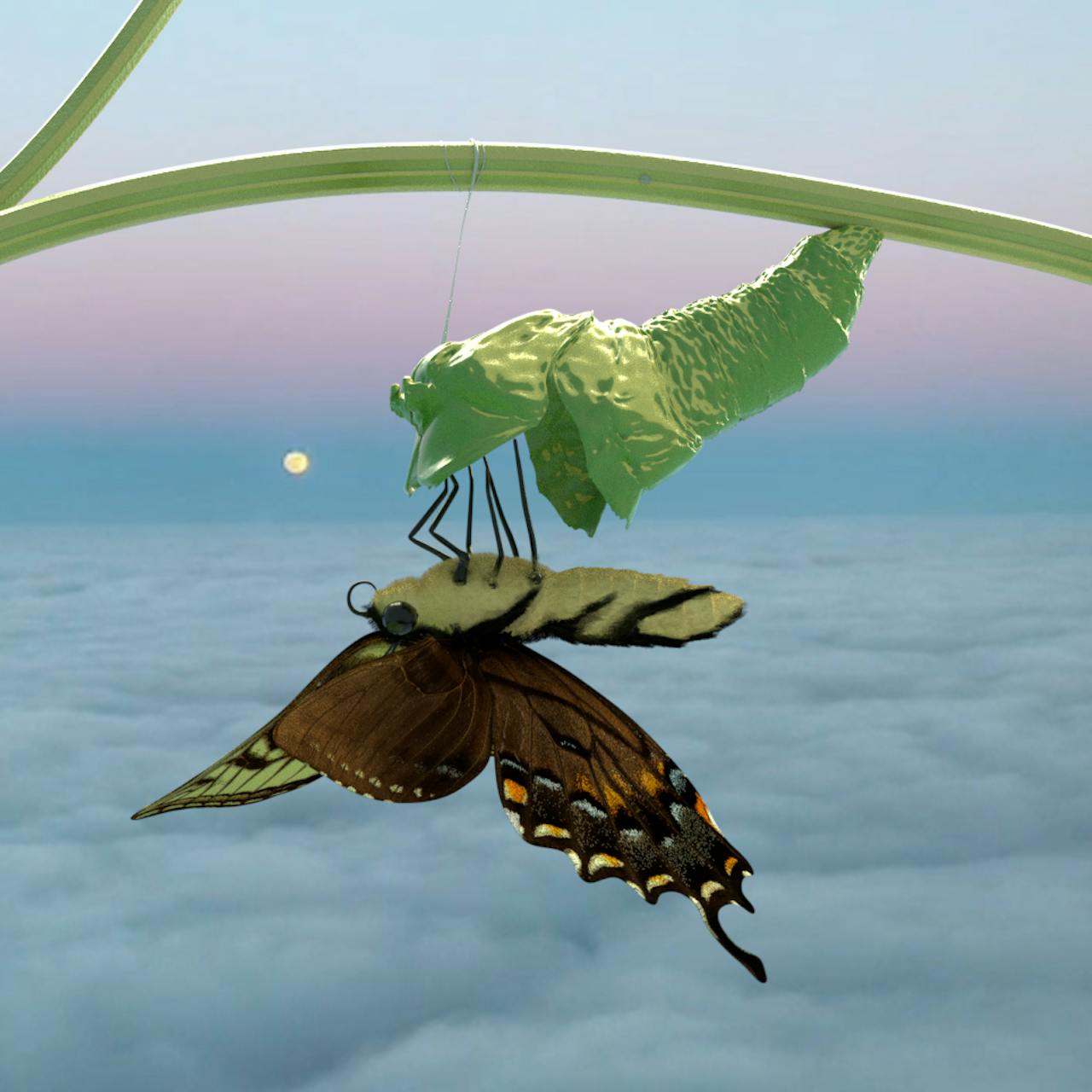Emergence
METAMORPHOSIS


The Institute of Queer Ecology
In Emergence, the final chapter of the Institute of Queer Ecology’s Metamorphosis, Mykki Blanco guides us out of our straight, fossil-fuel soaked cocoon.
The mode of “reproduction” integral to cis-heterosexuality and the traditional family and thereby to capitalism is unsustainable. The biopolitical control exercised by capitalism’s investment in heteropatriarchy—by maintaining clear gender roles, clear family orders, limiting reproductive rights, and so on—only allows for the reproduction of the world in which we already live. It posits reproduction as a useful tool to regenerate its ideas and to generate laborers it sees as disposable. It limits the passing of knowledge, the building of kinships across traditional boundaries of age, geography, and kinship. It limits the imagination. But to build a new world, we must first imagine a way towards it. Queerness has long made families and shared knowledge in alternative ways. queerness introduces desire as a world-building tool.
Utopic thinking is not about queering capitalism but leveraging queerness to mutate capitalism, to dissolve it, . and transform it. Where petro-capitalism produces things to be disposed of—including human beings—a heliosocialist or hydrosocialist system would force us to move with earth systems—the sun, the water—to be in constant balance with the earth’s movements and the many species that inhabit the planet.
This is not opposed to “reproduction,” but opposition to the reproduction of the world as is, a world that limits desiring, imagining, connecting, learning, and growing. Similarly, indigenous philosophies—many of which have long grappled with the post-human, object-oriented, or ecocentric turns new to western thought for years—and struggles promote and promise anti-capitalist, anti-extractive alternatives. A queer utopia would be one of indigenous sovereignty.
Currently, we are reproducing for a world that cannot continue without end, a world that does not make space for genuine desire and that is not generable. Rather than reproducing, we might produce something altogether new.
